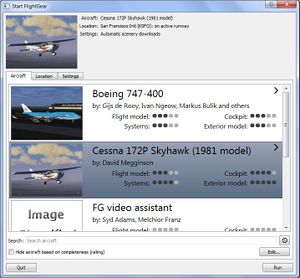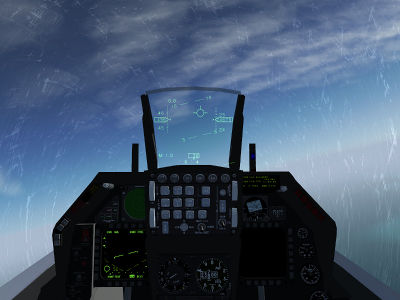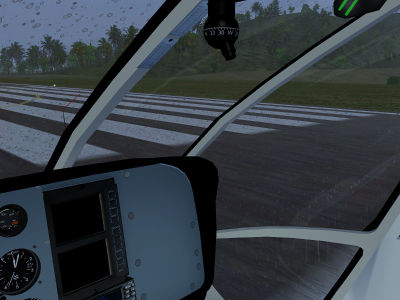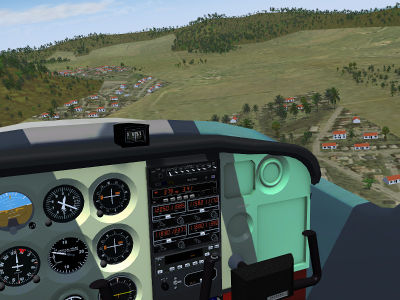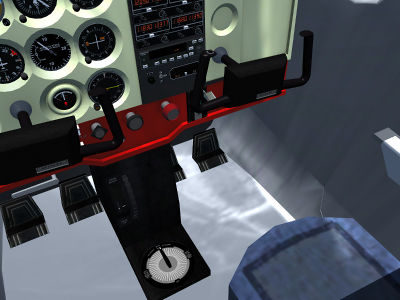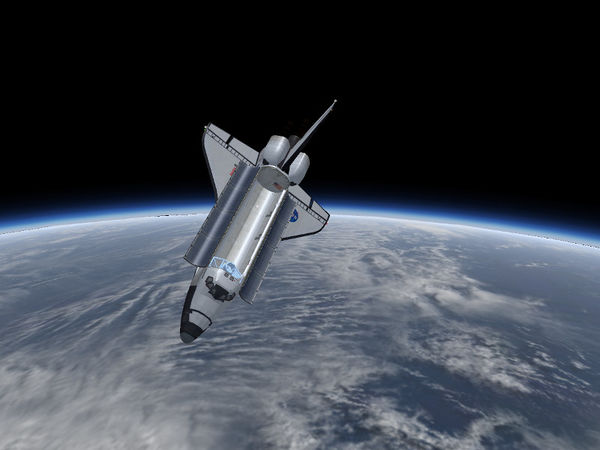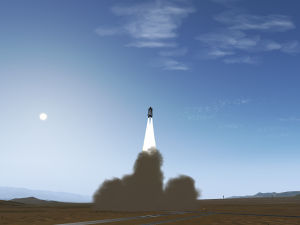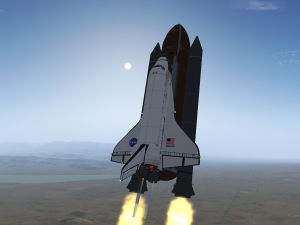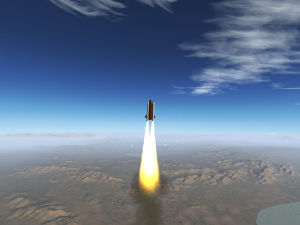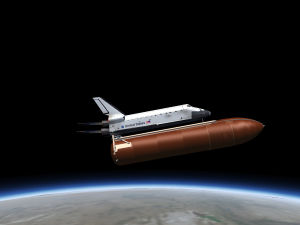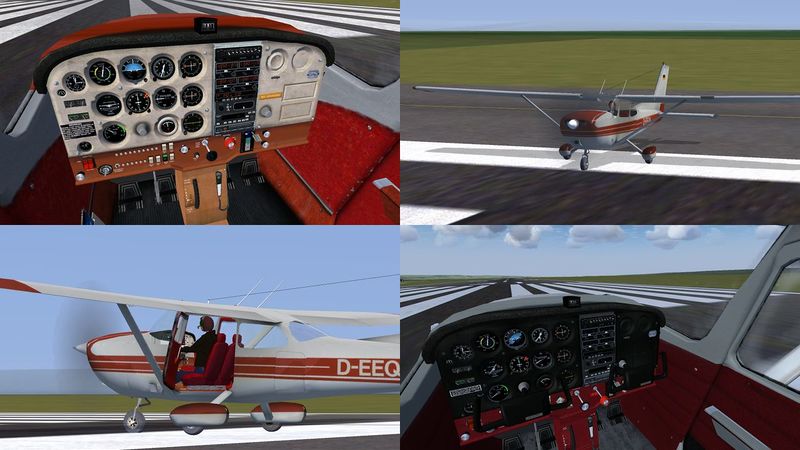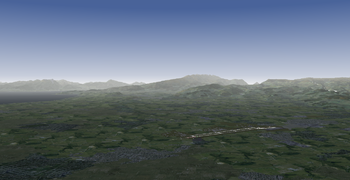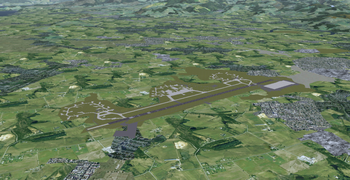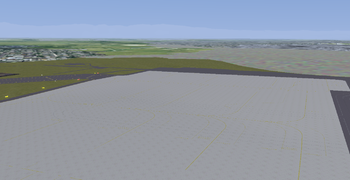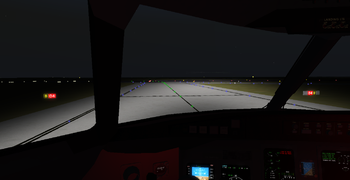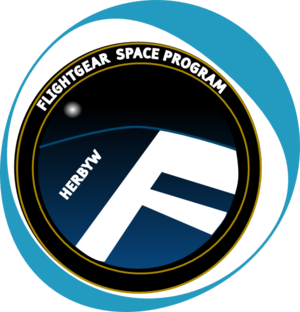FlightGear Newsletter March 2015
Project restructuring
Due to two recent developments, large parts of the FlightGear project are moving. The first is the announcement that Gitorious.org will shut down in May this year (read more) and the second is that Google Code will shut down in 2016 (read more). These developments have affected the source code (SimGear and FlightGear), bug tracker, and TerraSync SVN repository are moving. In addition, just previous to these developments, fgdata was split (see below for details).
All repositories of the FlightGear project have been synchronized to SourceForge.net[1]. No more work should be pushed to Gitorious any more. Except for fgdata, all others are mirrors of the original and a new clone is not necessary. All you have to do is update the URL(s) of your remote(s) and pull as usual.
Example for SimGear with read-only access:
git remote set-url origin <protocol>git.code.sf.net/p/flightgear/<sub-project>
<protocol> can be either of git:// (read-only access) or http:// (read/write access). See http://sourceforge.net/p/flightgear/_list/git for a list of what <sub-project> should (they should also be lowercase).
Example for SimGear with read/write access:
git remote set-url origin http://git.code.sf.net/p/flightgear/simgear
Several (but not all) of the Git related articles on the wiki have been updated, including FlightGear Git: data developers.
To get re-added as a contributor to the FlightGear repositories, you will have to do the following steps[2]:
- Register a SourceForge.net
- Upload your public key.
- Send your SourceForge username to Curt, Clément, James, or Torsten D, stating which repo(s) you want to be re-added to.
The bug tracker has moved to http://sourceforge.net/p/flightgear/codetickets/[3]. All old issues/feature requests have been preserved. The wiki template {{Issue}} has been updated (diff).
TerraSync is yet to be moved as of April 2.
FGData split
After lots of hard work by Torsten D, a new, more compact fgdata repository (base package) has now been created. Located at http://sourceforge.net/p/flightgear/fgdata/, this new fgdata has had all aircraft (except for the C172p and UFO) stripped from it, as well as the histories of the Scenery, AI, and Models directories[2]. This has reduced its size to about 1.3 GB[4]. As almost all commit IDs have changed, you will have to get a fresh clone of this new fgdata[2]. See above for information on getting re-added as a contributor.
| Note For consistency reasons, fgdata development should now happen on the "next" branch and no longer in "master". "next" should be the default branch[5]. |
| Note IAHM-COL has preserved the history of all aircraft at https://github.com/FGMEMBERS[6]. |
| Note See FGAddon for obtaining aircraft other than the C172p and UFO. |
Development news
Upcoming built-in GUI
Development of a new GUI frontend for FlightGear has started, with the aim to replace FGRun and eventually the PLIB PUI. James Turner is currently prototyping this new launcher, based on Qt Quick, at the suggestion and encouragement of Curt, Torsten D & others[7]. There will also be the HTML5-based GUI called Phi, which is being developed by Torsten D.
The reason for the announcement is that this would overlap some areas other developers are working on. This will hopefully avoid others unnecessarily expending energy on areas that might be affected.
Note The parallel development of HTML and Qt-based UIs is happening by intention and is not the result of discoordination[8]. It is likely both will use a common service layer to provide necessary data[9].
To learn more, see Integrated Qt5 Launcher.
Atmospheric light scattering
Two new cockpit interior effects have been added to the ALS rendering framework.
Environment-responsive glass
A new glass effect for the cockpit interior brings dynamical rendering of raindrop splashes as well as frost. In future, the effect will also include fogging and windshield wiper support with aircraft-supplied texture masks, all with a realistic interaction with the sunlight, including the enhanced visibility of dirt on glass when looking into the sun due to Mie scattering.
Both frost and the correct splash dynamics of the raindrops need to be modelled by the aircraft developer, as the shader cannot have get the required information. See ALS glass effect for details.
Cockpit interior light and shadow
Do you like the way shadow and light move across the panel in flight when using Rembrandt? ALS is now able to do the same and more using the new model-interior effect which utilizes a cubemap representing the cockpit layout – at hardly any framerate cost. The effect is able to draw very sharp shadows without flickering, semi-shadows, dirty or tinted glass, and even render caustics from light refracted on curved glass surfaces.
All that's needed from aircraft modellers is a pre-computed cube map representing the cockpit. See internal cockpit reflection and interior shading for more details.
FlightGear goes to space, part III
Independent of the FlightGear space program, efforts are underway to provide the Space Shuttle with a flight dynamics model which has the characteristics of a real spacecraft and performance close to the real Shuttle.
Currently, a plausible behaviour of the SRBs ![]() has been implemented. Only the main engines respond to throttle, but SRBs burn until exhausted when ignited. The ascent path is controlled by thrust vectoring on both main engines and SRBs. Callouts for important ascent milestones are implemented, such as thrust bucket[10], SRB separation, orbital insertion, MECO, etc. Balancing the top-heavy external tank to a good orbit is moderately challenging.
has been implemented. Only the main engines respond to throttle, but SRBs burn until exhausted when ignited. The ascent path is controlled by thrust vectoring on both main engines and SRBs. Callouts for important ascent milestones are implemented, such as thrust bucket[10], SRB separation, orbital insertion, MECO, etc. Balancing the top-heavy external tank to a good orbit is moderately challenging.
The best visuals can be obtained by switching to the Earthview orbital rendering engine at high altitude:
Stay tuned for more! Modelers interested in realism are very welcome to come aboard and help.
New ATC-pie release
Announced as beta in January and released as stable early February, ATC-pie has happily served a few ATC sessions in its first month of existence. In particular, it seems to have found comfortable homes for adoption in EKCH and LFOK already. Meanwhile, progress was made on its development to reach the important milestone of general and continuous ATC coordination on FlightGear with the handover feature, released this month.
Beginning to populate the network with a new program without dividing the MP network (especially controllers) was a challenge as interesting as necessary. Collaborative work made this possible, enabling both OpenRadar and ATC-pie users to exchange strips in a transparent way, regardless of their software choice.
See also the forum announcement …
Variant-of tag added
Aircraft developers can make use of a new tag in the Aircraft-set.xml file. Added to the <sim>, the <variant-of> tag states to the launcher the aircraft type that your aircraft is a variant of. For example, the BAe Sea Harrier FA2 is a variant of the BAe Sea Harrier, and the Cessna 172P - Canvas Demo is a variant of the C172P.
Syntax:
<sim>
...
<variant-of>[aircraft]</variant-of>
...
</sim>
Example from the Boeing 777-200ER:
<variant-of>777-200</variant-of>
Upcoming features of FGCamera
FGCamera v1.3 will have few notable features:
- "Click-camera" mode. Camera is activated by left-clicking on scenery while pressing modifier (customizable key/button). Previous view is restored by pressing modifier again (without LMB);
- AI-object camera mode. Each AI object can have pre-defined camera views;
- Replay timestamps. Camera views can be "tied" to specific replay timestamp. Timestamps are defined using *.xml files;
- "Chainable" cameras (automatic switching of cameras in the same category);
- API. Cameras can be created and manipulated procedurally.
In the hangar
c172p-detailed project
A new, more detailed version of the C172p is currently being worked on by wlbragg, gsagostinho, thevirtualfer, ludomotico, onox and others. It brings amazing new textures, controls, switches, and systems! Below are some of the results of their work:
Find out more at Cessna 172P detailed …
Scenery Corner
Verona Villafranca 2D layout released
Elgaton has released the complete 2D layout for the Verona Villafranca Airport (LIPX) and submitted it to the Airport Scenery Gateway. See the forum thread for download links. 3D buildings will be added in the coming months.
Holding short in the CRJ700 at night
Project Venezuela
Project Venezuela is on the way, with a team of users, headed by legoboyvdlp working on several airports, namely SVMI and SVVP. Their progress can be downloaded at their GitHub repository. Note: legoboyvdlp currently on vacation, so P.Ven. is on a hiatus until June.
Community News
FlightGear on YouTube
From the SMAAF GAMEZ channel.
FlightGear Space Program
Now is your time to become official cosmonaut of The FlightGear Space Program. Just download the famous Space Shuttle and select any of the available missions. Report your successful orbit flight tracker screenie and you'll receive a custom badge of the FlightGear Space Program.
The Space Shuttle can be downloaded from the GitHub repository either in a ZIP file or by cloning.
As an add-on also you can fly our Special Cargo Transport Missions with the heavily updated An-12, An-22, and An-225.
Find out more about space flight in FlightGear at FlightGear space program …
Contributing
Translators required
| The FlightGear Wiki still needs help for translating it into various languages. If you are interested in making the FlightGear Wiki multi-language then start at Help:Translate. | |
| Das FlightGear Wiki benötigt immer noch Hilfe bei der Übersetzung in verschiedene Sprachen. Wenn Du Interesse daran hast, das FlightGear Wiki Mehrsprachig zu machen, dann fang doch mit Help:Übersetzen an. | |
| De FlightGear Wiki kan nog steed hulp gebruiken bij het vertalen van artikelen. Als je interesse hebt om de wiki meertalig te maken, raden we je aan om een kijkje te nemen bij Help:Vertalen. | |
| La FlightGear wiki todavía necesita ayuda para traducirla a varios lenguajes. Si estás interesado en hacer la FlightGear wiki multilingüe, entonces comienza en Help:Traducir. |
FlightGear logos
If you want some graphic elements for your FlightGear-related site (for example a hangar or YouTube channel), please feel free to visit FlightGear logos for a repository of logos. And if you have some art skills, please don't hesitate to contribute with your own design creations.
Screenshots
The FlightGear project always needs screenshots, which show features that were added since the last release. These should be of good quality, especially in content and technical image properties. It is therefore recommended to use the best viable filter settings (antialiasing, texture sharpening, etc.). More info at Howto:Make nice screenshots.
References
|

